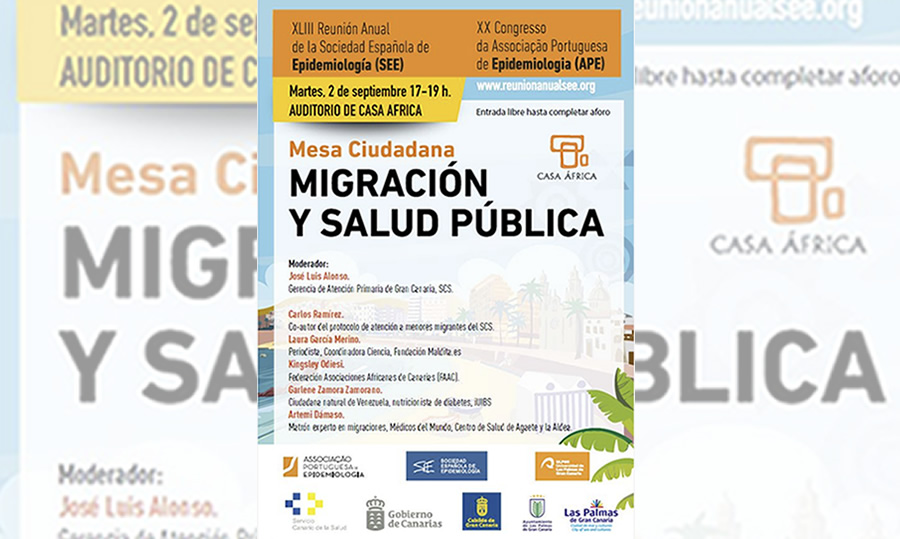
The XLIII Annual Meeting of the Spanish Society of Epidemiology opened a space for reflection in Las Palmas with the Citizens' Roundtable on Migration and Public Health. The meeting was held on 2 September in the Casa África Auditorium, a forum that brought together specialists and social representatives to analyse the challenges faced by migrant communities in access to health care.
The organisation's president, Kingsley Odiesi, participated in the roundtable and highlighted the importance of including citizens in the discussion on public health. He stressed that migration processes pose specific challenges that must be considered in the planning of health policies and services, with the aim of ensuring equitable coverage.
The dialogue also included the contribution of family doctor Carlos Ramírez, member of the Working Group on Migration and Health of the Canary Islands Society of Family and Community Medicine, who pointed out the need to strengthen coordination between levels of care. Journalist Laura García Merino, science coordinator at the Maldita.es Foundation, also spoke, emphasising the role of rigorous communication in combating misinformation.
The citizen perspective was represented by the Venezuelan nutritionist Garlene Zamora Zamorano, a specialist in diabetes, who highlighted the importance of adapting prevention programmes to the cultural realities of each community. Along the same lines, Artemis Damaso, midwife at the Primary Care Management of Gran Canaria, focused on the challenges related to maternal and child health in contexts of cultural diversity.
Participants agreed that migrants' health cannot be understood in isolation, but in relation to social, economic and cultural factors. They also stressed that prevention and health education must be part of a comprehensive strategy that includes both professionals and the population itself.
This debate is part of an annual event that brings together experts in epidemiology from all over the country, and which on this occasion focused on the need to build inclusive, fair public policies backed by scientific evidence. Casa África thus became a meeting place where science, citizens and institutions discussed one of the great challenges of public health today.
Fsource: isanidad.com; @faaccanarias
